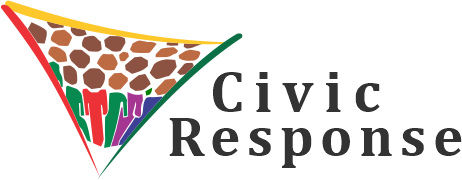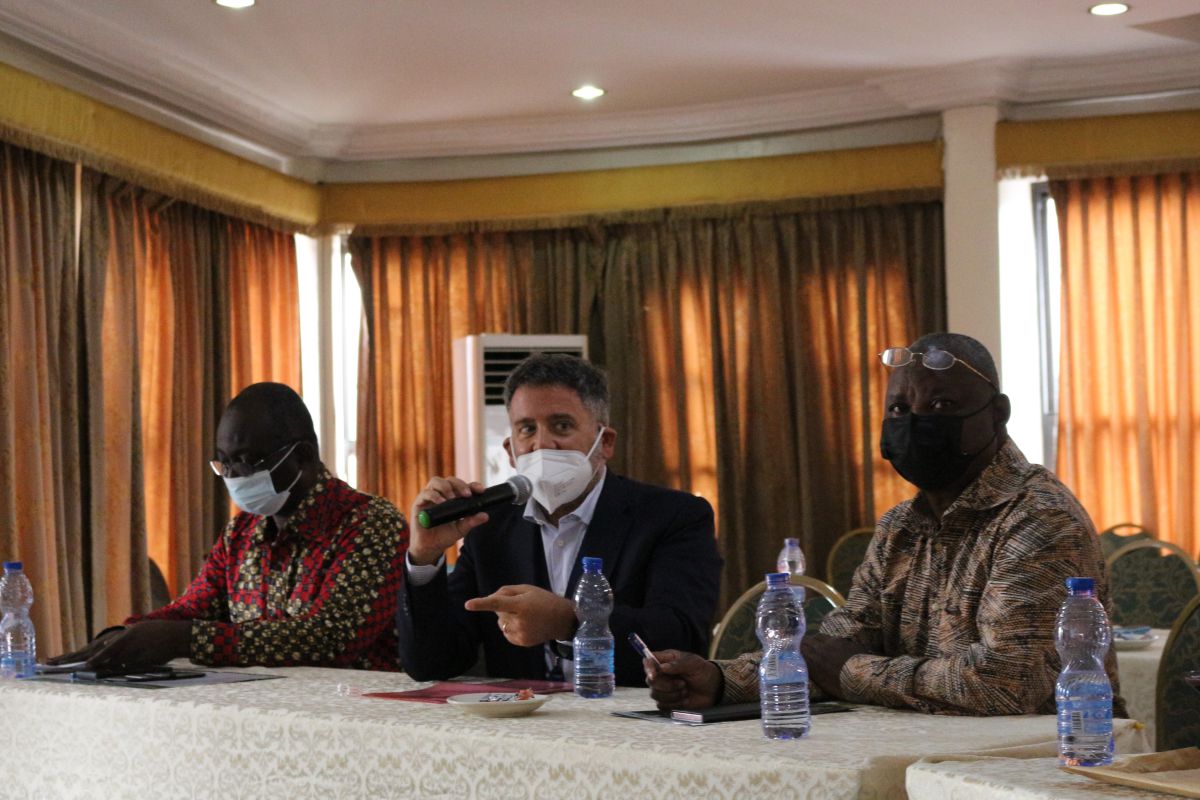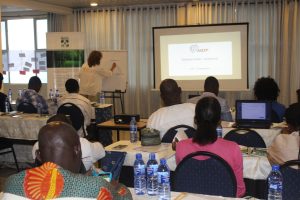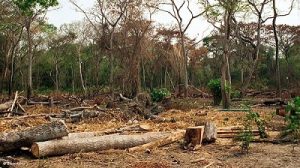The Ministry of Lands and Natural Resources (MLNR) has instructed the Forestry Commission (FC) to stop the issuance of Special Permits for logging in Ghana’s forests.
This was disclosed by Mr. Musah Abu-Juam, Technical Director in charge of Forestry at the Ministry of Lands and Natural Resources at the Collecting Data to Contribute to Implementation of Ghana’s VPA Impact Monitoring Framework project closeout workshop organised by Civic Response in Accra on 16th June, 2021.
With this directive, Mr. Abu-Juam is hopeful requests for such permits will come to an end.
In 2009, Ghana signed a Voluntary Partnership Agreement (VPA) with the European Union (EU) to trade in legal timber in both the domestic and export markets with the ultimate aim of issuing FLEGT licenses as prove of the legality of the timber. Article 17 of the VPA enjoins the parties (Ghana and EU) to develop better understanding of the impact of implementing VPA on the livelihoods of potentially affected stakeholders.
Consequently, a Joint Team on Impact Monitoring (JTIM) developed a VPA Impact Monitoring (IM) framework for monitoring VPA implementation impact in 7 key areas, namely livelihoods, forest conditions, forest governance, market performance, forest management, revenue generation and the VPA stakeholder deliberative process.
Data gaps were identified by the JTIM which could not be filled with data from the Forestry Commission or other sources.
In order to fill the data gaps in livelihoods, VPA stakeholder deliberative processes and indicator FC 10, Civic Response in conjunction with ResourceTrust Network developed the project titled “Collecting Data to Contribute to Implementation of Ghana’s VPA Impact Monitoring Framework” which collected VPA impact monitoring baseline information in livelihoods, VPA stakeholder deliberative processes, and FC 10. This project was developed under the auspices of the FAO-EU FLEGT Programme with funding from the European Union, Swedish International Development Cooperation Agency (SIDA) and UKAid.
The overall objective of the project was to collect data on VPA Stakeholder deliberative processes, livelihoods and forest conditions to feed Ghana’s VPA Impact Monitoring framework.

There were 4 main outputs of the project:
Output 1 was to develop methodologies for collecting baseline indicator data for livelihoods and VPA stakeholders’ deliberative process impact areas. This has been achieved.
Output 2 involved the collection of baseline data on livelihoods (specifically L2, L3, L4, L5, L8 and L10 indicators) and the VPA stakeholders’ deliberative process which was made available for integration into the Ghana VPA Impact Monitoring framework.
The livelihood indicators were
- L1- income levels in window forest districts
- L2 – income levels in forest fringe communities in forest window districts
- L3 – amount revenue delivered through the implementation SRAs
- L4 – ratio of revenue disbursed by OASL to funds spent by district assemblies on development projects
- L5 – Farmers are compensated according to market values
- L8 – Number of registered employees in the formal timber industry in window forest districts
- L10 – Average price of timber.
Baseline data on livelihoods and VPA Stakeholder deliberative processes were collected in 4 FWDs namely Goaso, Nkawie, Sefwi Wiawso and Akim Oda.
On the other hand, output 3 was on indicator number 10 of forest conditions: – ratio of volume of legal timber to volume of illegal timber (including confiscated timber as “illegal removals) from the formal timber sector. It required collecting baseline data from the 4 FWD districts. However, on second thought, the JTIM which supervised the baseline data collection decided that collecting data on FC 10 from only 4 FWDs will not give a national picture of the status of FC 10 hence the team rather developed the building blocks for collecting baseline data for FC 10 on a national scale for implementation outside this project.
The last output- output 4- entailed results dissemination. The final baseline reports for the respective indicators are being finalised for dissemination.
According to Mr. Abu-Juam, Ghana signed the VPA agreement to first of all sanitise its system and that there are many programmes ongoing to eliminate illegal logging. He likened VPA to a root which supported all these processes. He noted that even though the country is yet to commence the issuance of FLEGT licenses, there has been some successes one of which is the dialogue process that now exists among stakeholders. He, however, admitted that there are still a few measures that needed to be implemented, one of which is the conversion of extant leases to TUCs.

On his part, Mr. Roberto Schiliro- Team Leader Infrastructure and Sustainable Development of EU- recognised the need for Ghana and the EU to join forces and find solutions in spite of the differences in cultures and ways of doing things due to the mutual dependence on forests. He welcomed the collaboration between the Ghanaian government, Civil Society Organisations (CSOs) and the indigenous communities in the VPA process which is lacking in other sectors. He described the FLEGT-VPA dialogue as a marathon whose last mile must be accomplished. He also acknowledged the need for scientific evidence to enable us establish baselines, indicators and solid scientific data collections to benchmark where we are coming from, going and whether or not we are doing enough.
The Assistant FAO Representative to Ghana, Mr. Benjamin M. Adjei welcomed the exercise undertaken by Civic Response and noted that the findings call for concerted action. He advised that going forward, there is the need to find a way to craft messages in a way that politicians can buy into.
Mr. Chris Beeko, Director of the Timber Validation Department of the FC who was the chairman for the occasion noted that Ghana has been attempting to put in place systems that assure markets that the country is able to fulfil all legal requirements to lift timber consignments to trade and the FLEGT-VPA initiative helps to effectively communicate the country’s compliance to its own laws. He advised that Ghana should aim at ensuring that citizens obey the laws and that no one is disadvantaged in the process.
The Head of Programmes at Civic Response, Mr. Albert Katako identified Covid-19 as a major challenge in implementing the project. According to him, the outbreak of the disease delayed the field work particularly the data collection. With regards to FC 10 which has to do with the ratio of illegal timber to legal timber in both the formal and informal sectors, he disclosed that after deliberations with the JTIM, a decision was taken to collect data on a national scale instead of the initial plan to do so in only 4 Forest Window Districts(FWDs). Unfortunately, the project could not support that. However, a small task team put together has developed the building blocks for data collection on a national scale on FC 10.
Civic Response and ResourceTrust Network under the auspices of the FAO-EU FLEGT Programme with funding from EU, Swedish International Development Cooperation Agency (SIDA) and UKAid implemented the project.
Below are pictures from the event.




